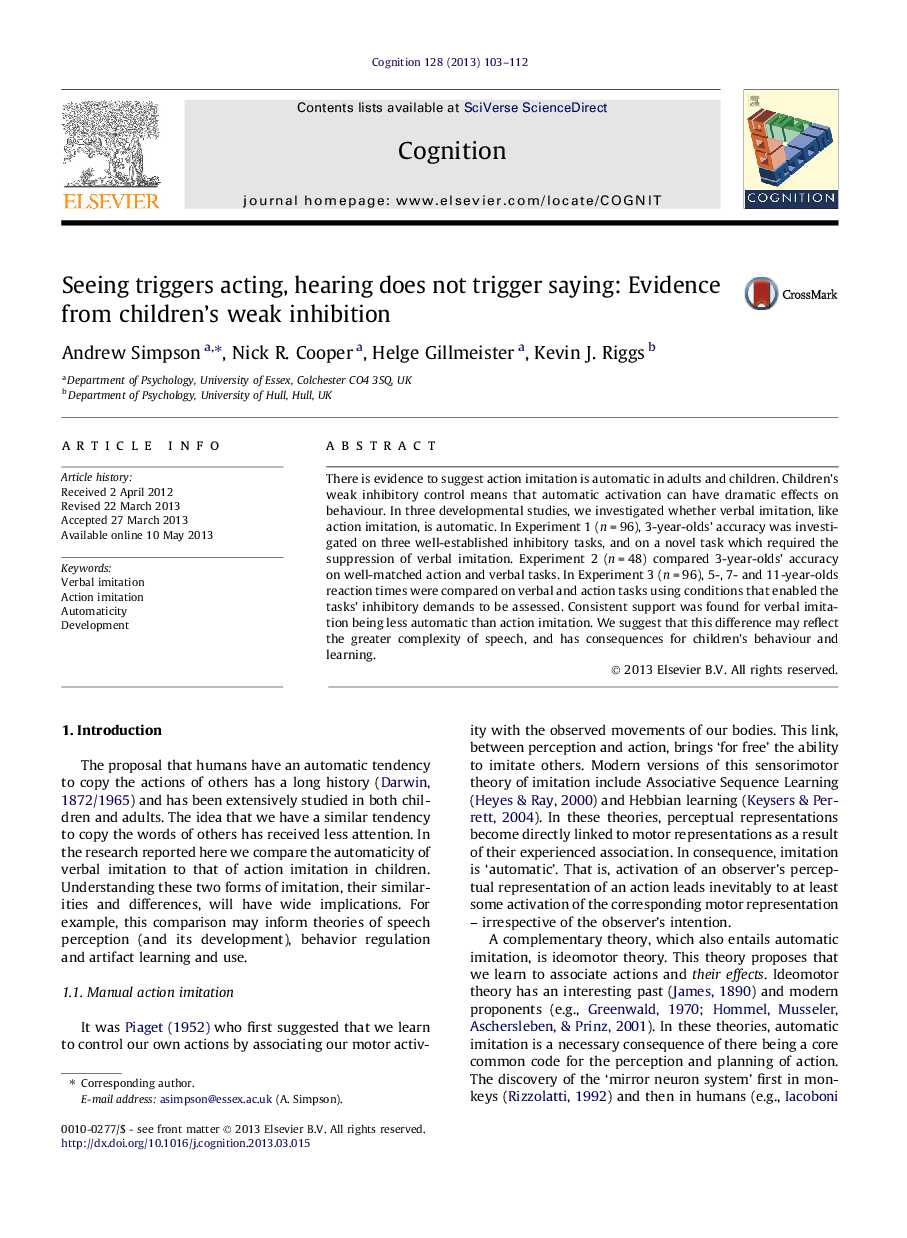| Article ID | Journal | Published Year | Pages | File Type |
|---|---|---|---|---|
| 926706 | Cognition | 2013 | 10 Pages |
•Evidence that 3-, 5-, 7- and 11-year-olds are better at avoiding verbal than action imitation.•The first evidence that action imitation is more automatic than verbal imitation.•Consistent with young children controlling speech better than manual action.•Consistent with young children learning to produce new actions faster than new words.
There is evidence to suggest action imitation is automatic in adults and children. Children’s weak inhibitory control means that automatic activation can have dramatic effects on behaviour. In three developmental studies, we investigated whether verbal imitation, like action imitation, is automatic. In Experiment 1 (n = 96), 3-year-olds’ accuracy was investigated on three well-established inhibitory tasks, and on a novel task which required the suppression of verbal imitation. Experiment 2 (n = 48) compared 3-year-olds’ accuracy on well-matched action and verbal tasks. In Experiment 3 (n = 96), 5-, 7- and 11-year-olds reaction times were compared on verbal and action tasks using conditions that enabled the tasks’ inhibitory demands to be assessed. Consistent support was found for verbal imitation being less automatic than action imitation. We suggest that this difference may reflect the greater complexity of speech, and has consequences for children’s behaviour and learning.
